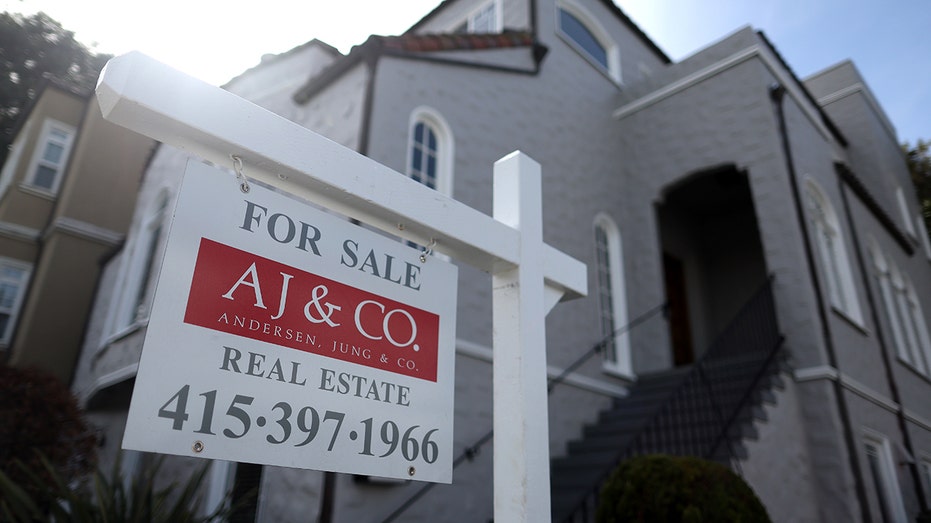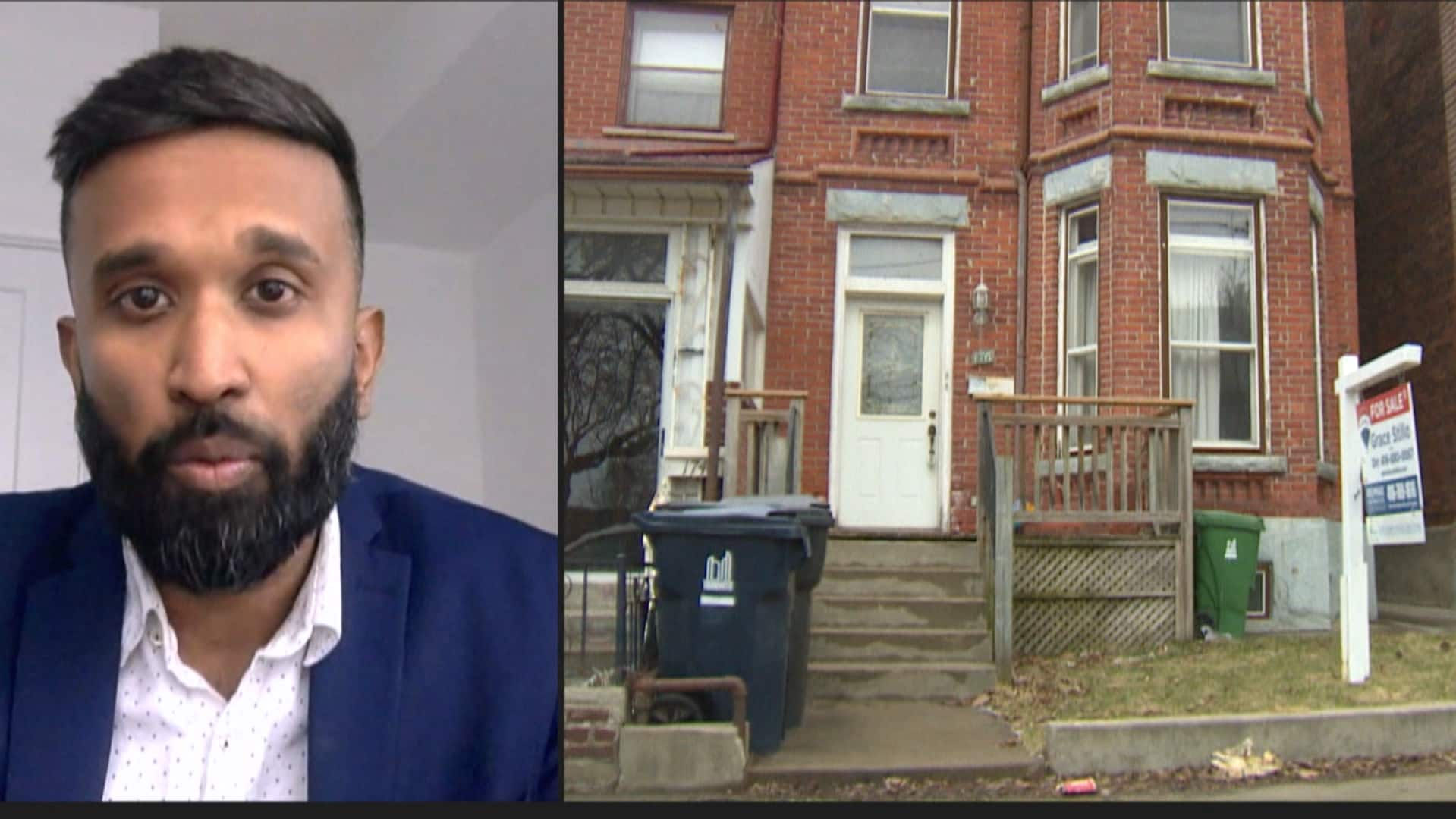How this 25-year-old earns $515,000 per year as a real estate investor

This story is part of CNBC Make It’s Millennial Money series, which details how people around the world earn, spend and save their money.
You could call Sahil Mehta an overachiever.
At just 25, he works full-time as an executive assistant for a real estate agent at Golden Gate Sotheby’s in Berkeley, California, helping manage and close sales. And in his free time, he operates a small management company with his older brother, Suyash, 30. They own five properties worth $9.4 million around Berkeley, four of which they rent to college students and families and one of which they operate as an Airbnb.
The commissions he earns at his day job coupled with rental income net him, conservatively, around $515,000 per year: around $350,000 from Sotheby’s and the rest from rental income and Airbnb. Depending on how many houses he helps sell and his Airbnb income, which fluctuates, he could earn even more.
Sahil Mehta, 25, is a real estate investor in Berkeley, California.
CNBC Make It
Mehta began working for Sotheby’s while attending the University of California, Berkeley, in 2015. He was able to save 99% of his commissions during that time by splitting rent with his brother and keeping other expenses to a minimum, he says, enabling him to buy his first property when he graduated in 2017.
Real estate has always interested Mehta. He got his license at 18 and sold his first home shortly after. He never imagined, though, that it could be this lucrative this fast.
“I fell into this career that I knew had a lot of flexibility,” says Mehta. “I could get out what I put in. And anything I do … I try to give it 110%.”
Of course, managing properties does come with headaches. Learning zoning laws has taken up much of his time over the past few years: He had planned to flip a duplex purchased in January 2020 into a single-family home, but local housing ordinances precluded that. He estimates he lost tens of thousands of dollars before changing tact and renting out that property on Airbnb.
Sahil Mehta, 25, is a real estate investor in Berkeley, California.
CNBC Make It
Mehta acknowledges that would-be investors need a lot of money to even get into the game, and that he was lucky to land the Sotheby’s job in college, which allowed him to save a significant amount at such a young age.
Still, he hopes sharing his story with CNBC Make It will inspire others to start investing in real estate, even with the constraints.
“I went through several low moments where I was making nearly nothing to get to where I am today,” he says. “I feel so fortunate to be where I am.”
How he budgets his money
Here are Mehta’s monthly personal expenses as of July 2021.
Elham Ataeiazar | CNBC Make It
- Savings: $10,000
- Transportation: $1,745 for his car payment, rentals when he is out of town and insurance.
- SEP IRA: $1,500
- Food: $700 for dining out and groceries. Mehta eats out for many of his meals.
- Travel: $460
- Discretionary: $310 for donations and shopping.
- Subscriptions and memberships: $198 for an Equinox gym membership and Spotify.
- Phone: $70
Mehta lives rent-free in one of the buildings he owns (though the management company he and his brother own covers the mortgage with rental payments from other tenants). The catch: He moves every few months, to whichever property has an open room.
Sahil Mehta and his brother, Suyash, own 5 properties together.
CNBC Make It
He tries to save as much money as he can each month, and when he and his brother have saved enough, they look for a new property. He currently has around $80,000 in his personal savings account, rebuilt after the brothers purchased a multi-million-dollar property and renovated it earlier this year. Right now, every extra dollar is going to contractors and other expenses; he estimates they’ve put an additional $500,000 worth of work into the house, and will refinance it soon.
“The goal is to save as much as possible, but sometimes that ends up being very little just because of the natural expenses that come with property management and property improvement,” he says. Unexpected maintenance issues like a leaky pipe, for example, could wipe out an entire month’s savings. He and his brother pay for the expenses with the company cashflow.
The Mehta family on a trip in Hawaii.
Courtesy of Sahil Mehta
He and his family travel to Hawaii every year. They enjoy exploring different islands and soaking in the sun.
Mehta, who admires Elon Musk, purchased a Tesla Model X in December 2020 for $130,000. He put down $45,000 and financed $85,000. Because he uses it for business, he was able to reduce his 2020 tax liability by the entire cost of the car.
“It was my dream car,” he says. “I feel so fortunate to be able to buy it.”
Aside from the car, Mehta lives fairly frugally. His spending hasn’t changed much from when he earned $15 per hour working at Chipotle, because he and his brother both prioritize saving over spending on themselves in order to grow their company.
“One of the biggest barriers to entry is just having money. We know that,” he says. “We just want to reinvest as much as possible to grow this business in the best way possible.”
Family matters
Mehta has always worked hard. He was born and raised in Baltimore, where he lived with his parents, immigrants from India, and his three older siblings.
His mother owned a few businesses and his father was a doctor, and for most of his childhood, the Mehtas lived comfortably. But they lost much of their wealth during the market crashes of 2000 and 2008, he says.
That instability drove him to want to earn his own money from a young age: He would sell candy bars between classes in middle school, and got a part-time job at a country club in high school.
The Mehta family on a trip to Ellis Island.
Courtesy of Sahil Mehta
“Our parents never wanted us to be stressed or pressured,” he says. “But, inadvertently, seeing what they were doing to provide for us was a lot of pressure.”
In 2014, he visited his brother Sparsh, 31, at UC Berkeley, and knew instantly that’s where he belonged. He moved to California to spend his senior year at Berkeley High School, bunking with his brother in college housing and working at Chipotle to earn money on the side.
At the same time, he discovered he could earn college credits at the local community college that transferred to UC Berkeley. He earned enough to enroll in college as a junior.
Sahil Mehta, center, and his sibilings.
Courtesy of Sahil Mehta
He worked throughout his two years at Berkeley to cover tuition, and paid off a $10,000 federal loan shortly after he graduated with his Sotheby’s income. He says he had no assistance from his parents paying for his education.
“I was trying to be entirely self-sufficient,” he says. “I needed to do it myself.”
Looking ahead
In the free time he doesn’t seem to have, Mehta plays golf and attends Golden State Warriors games. His brother, Suyash, is also a referee in the NBA and got him into basketball.
He and his siblings are saving to buy their parents a home soon. They want them to have everything they need to be comfortable in retirement.
Sahil Mehta is focused on building his company, not the number in his bank account.
CNBC Make It
“There’s no proportional things that I can do for what they’ve done for us,” he says. “That being said, without conditions or anything, we will do what we can for them.”
As for his own future plans, Mehta has no set financial goals, or specific numbers he wants to hit. He just wants to keep working hard to provide for his family and continue to build the company. He acknowledges it’s a lot of money to earn at so young an age, but he doesn’t focus on the number he brings home.
“The money that I make doesn’t really change my why,” he says. “It just proves that when you have your reason, and a really grounded mission, that really the sky’s the limit.”
Sign up now: Get smarter about your money and career with our weekly newsletter
Don’t miss: This family earns over $80,000 a year traveling the US in an RV




